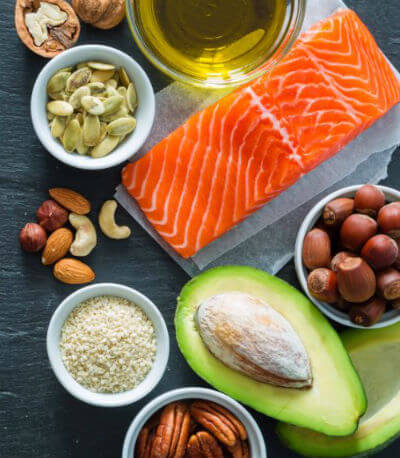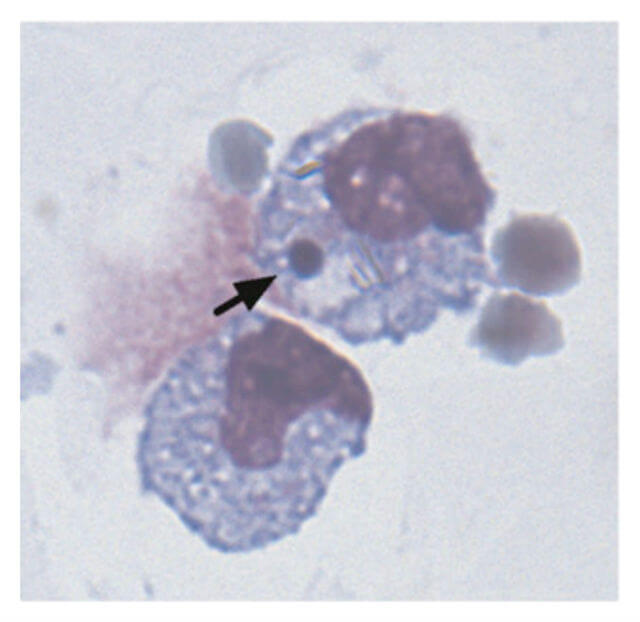Stopping Gout Together › Forums › Help My Gout! The Gout Forum › Investigate Free Fatty Acids (FFA) and Gout
- This topic has 5 replies, 1 voice, and was last updated 6 years ago by
 Keith Taylor.
Keith Taylor.
-
AuthorPosts
-
-
March 21, 2017 at 12:01 pm #2862
 Keith TaylorParticipant
Keith TaylorParticipant
This is an unusual work in progress for me. Because most ideas here are about improving existing pages. But, Free Fatty Acids (FFAs) are at the forefront of current gout research. So, this is about investigating, and understanding, the latest science. Then, I can create new pages that make these facts understandable by, and relevant to, different types of gout sufferer.
Because, I’m about to start my Wednesday Weekend, and I want to get my latest thoughts down before I forget. When I eventually publish something, it will most likely be aimed at Gout Dieters. Or, Gout Herbalists. So, if you’re not sure if this applies to you, please look at Questions for Gout Sufferers. But, maybe you’re interested in cutting-edge gout treatment research. In which case, join in and post some comments.
Firstly, this is prompted by spotting that someone has been searching for FFA and gout information. So, I’m happy that the service I introduced in I give secret help to all gout sufferers is working. If only for me! 😉
At the moment, the main result for that search is an old discussion. So, my first task is to produce an up-to-date summary of FFAs and gout. Then, I can archive the old discussion.Secondly, I always knew this would be a difficult topic. Because it’s cutting-edge science with complex microbiology. So, I have to learn the significant names. Then, try to explain that in layman’s terms.
But, it could be as simple as saying: if you get your omega-3 balance right, you won’t get gout pain (or any other inflammatory pain).
Now for the science, which I hope someone can explain to me, so I don’t have to spend hours deciphering.
Butyrate, neuroepigenetics and the gut microbiome: Can a high fiber diet improve brain health?. Not about gout. But, it has good info on butyrate. Which, I’m starting to see as nature’s answer to colchicine.
Acute gouty arthritis is caused by endogenously formed monosodium urate (MSU) crystals, which are potent activators of the NLRP3 inflammasome. However, to induce the release of active interleukin (IL)-1β, an additional stimulus is needed. Saturated long-chain free fatty acids (FFAs) can provide such a signal and stimulate transcription of pro-IL-1β. In contrast, the short-chain fatty acid butyrate possesses anti-inflammatory effects
Which means: Gout attacks are caused by uric acid crystals. Because they start the foundation of acute inflammation. However, to start the actual inflammation, they need someone to open the gate. FFAs can open the inflammation gate. In contrast, butyrate (and others) can keep the gate shut.
Can GPR43 sensing of short chain fatty acids unchain inflammasome-driven arthritis?
I think I need to start a new website to begin to understand that one. If you want your brain to hurt, give it a read.Anyway, it’s a comment on A Role for Gut Microbiota and the Metabolite-Sensing Receptor GPR43 in a Murine Model of Gout. Which, is equally indecipherable. But, I do know that murine=mouse. So, some human research is definitely overdue.
To conclude, I’m sorry this probably doesn’t help you with gout questions about what you should eat to limit gout pain. But, I hope you’ll bear with me as I try to develop a simple explanation of why purines are not as significant as they are assumed to be. So far, without explanation, my best advice is:
Management of purines in your gout diet is long term. They lay the foundation for gout attacks and all the other problems associated with uric acid crystals in your body.
Management of fatty acids is daily, and lifetime. Because some fatty acids will promote inflammation. But, some fatty acids will limit inflammation. Not only is getting the balance right good for limiting gout attacks. But it might also improve your brain health. Personally, that’s my biggest concern today. 🙂

Which are the tastiest foods with Omega 3 Fatty Acids for your Gout?
-
March 22, 2017 at 9:05 am #2868
 Keith TaylorParticipant
Keith TaylorParticipantI missed a relevant gout study.
Low omega-3 fatty acid levels associate with frequent gout attacks: a case control study. Unfortunately, it’s another study of mice:Thus, omega-3 fatty acids have the potential of preventing acute attacks of gout. However, the association between omega-3 fatty acid levels and frequency of gout attacks has not been examined in humans.
-
March 22, 2017 at 9:58 am #2870
 Keith TaylorParticipant
Keith TaylorParticipantBy Heck[*], this is getting exciting. Except, it’s sad all these mice are suffering.
In conclusion, a high-fiber diet or one of its metabolic products, acetate, controls the inflammatory response to MSU crystals by favoring the resolution of the inflammatory response. Our studies suggest that what we eat plays a determinant role in our capacity to fine tune the inflammatory response.
Don’t we all want to fine-tune our inflammatory responses? With butyrate and acetate on our side, how can we fail? By the way, I’m sure I spotted somewhere that acetate is destroyed by alcohol. So, I’ll research that further when I get back from the pub.
[*] By Heck is Yorkshire for OMG. 🙂
-
March 22, 2017 at 10:07 am #2871
 Keith TaylorParticipant
Keith TaylorParticipantI missed the press release on that gout research:
This work is an elegant example of how tuning of inflammatory circuits by linking diet to microbial products can have a profound effect on an inflammatory disease in the joints. Future work may allow such findings to be translated into practical treatments for gout and other diseases.
Do your inflammatory circuits need tuning?
-
-
March 22, 2017 at 10:30 am #2872
 Keith TaylorParticipant
Keith TaylorParticipantIt’s time to stop researching today. In conclusion, it’s very complicated because of the microbiology terminology. But, there has to be a simple explanation. I’m not sure how far my gate analogy will stretch:
Which means: Gout attacks are caused by uric acid crystals. Because they start the foundation of acute inflammation. However, to start the actual inflammation, they need someone to open the gate. FFAs can open the inflammation gate. In contrast, butyrate (and others) can keep the gate shut.
But I think my introduction to acetate tells me something new. If inflammation gets through the gate, there’s the big question of how quickly we can get rid of it. Naturally, our bodies will reduce inflammation, which I’ve learned is called efferocytosis. Apparently, scientists are researching a whole raft of products that can make lots of money by enhancing these natural processes. So, in “How factors involved in the resolution of crystal induced
inflammation target IL-1ß”, Oliviero states:Considering the importance of IL-1 blocking agents in reducing acute attacks, firstly noted with regard to IL-1Ra anakinra, and then to the anti-IL-1β monoclonal antibody canakinumab, every molecule capable to reduce IL-1ß production could represent a potential therapeutic target and have a positive impact on the clinical practice.
So, drug companies have lots of potential for new products to block inflammation. Also, lots of new products for resolving inflammation quicker if it hasn’t been blocked. But, these are all based on better scientific understanding of how we naturally deal with inflammation. So, isn’t it easier just to eat right?
-
March 24, 2017 at 11:35 am #2889
 Keith TaylorParticipant
Keith TaylorParticipantBefore I start summarizing research, I found a couple of related studies that might offer some good practical advice. Of course, these are not specific FFA studies. But, the practical effects might end up by being explained by FFA research. Though, even if these are unrelated, they are both valuable to Gout Dieters.
1. Should the DASH Diet Be Recommended for Gout Patients?
Conclusion. For participants with SUA levels > 7, an average reduction in serum uric acid of 1.29 mg/dL can reasonably be expected from implementation of a DASH-type diet.
(side note: I need to update my existing DASH diet and gout article to reflect this study.)
2. Effects of Lowering Glycemic Index of Dietary Carbohydrate on Plasma Uric Acid Levels: The OmniCarb Randomized Clinical Trial.
Conclusion. Reducing the glycemic index lowers uric acid levels. Future studies should examine whether reducing the glycemic index can prevent gout onset or flares.
Interesting how this supports my notion that anyone who thinks gout control is all about purines has lost the plot.
-
-
AuthorPosts
The forum ‘Help My Gout! The Gout Forum’ is closed to new topics and replies.
